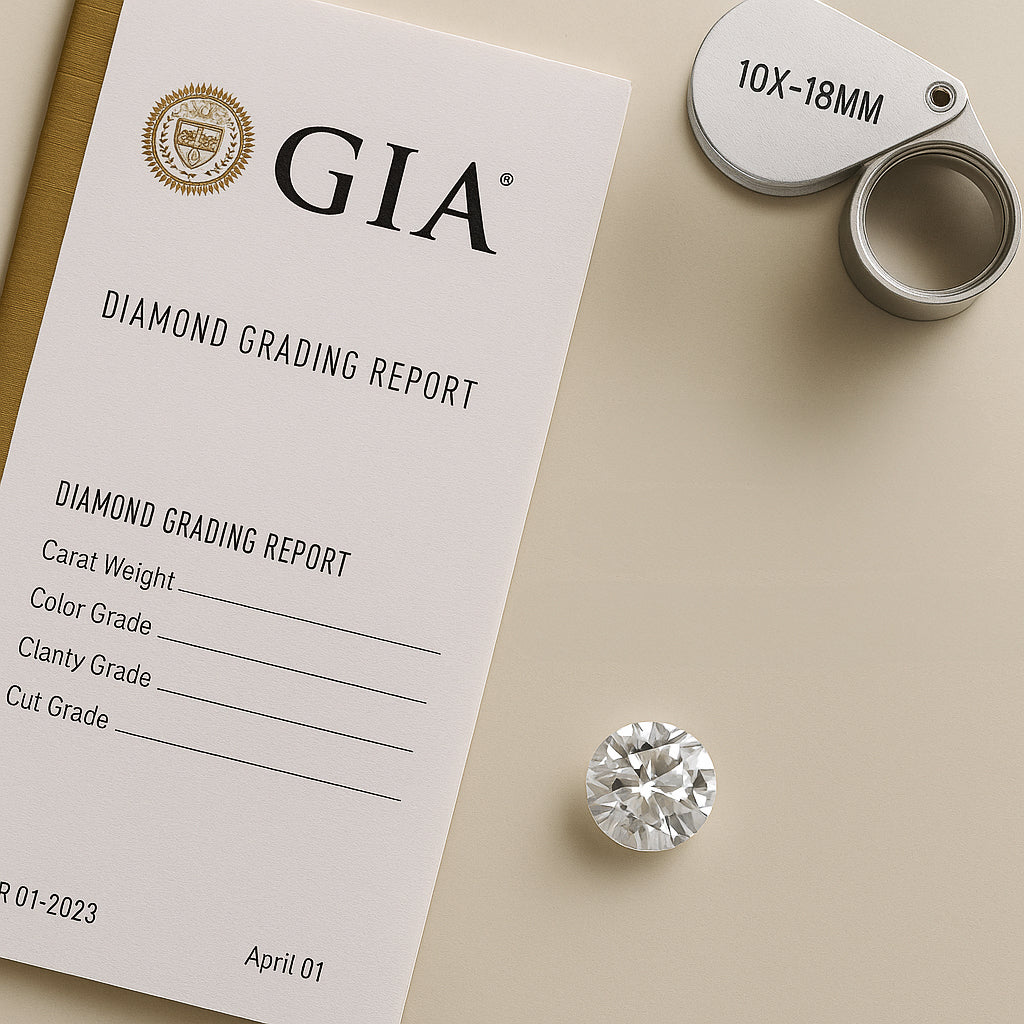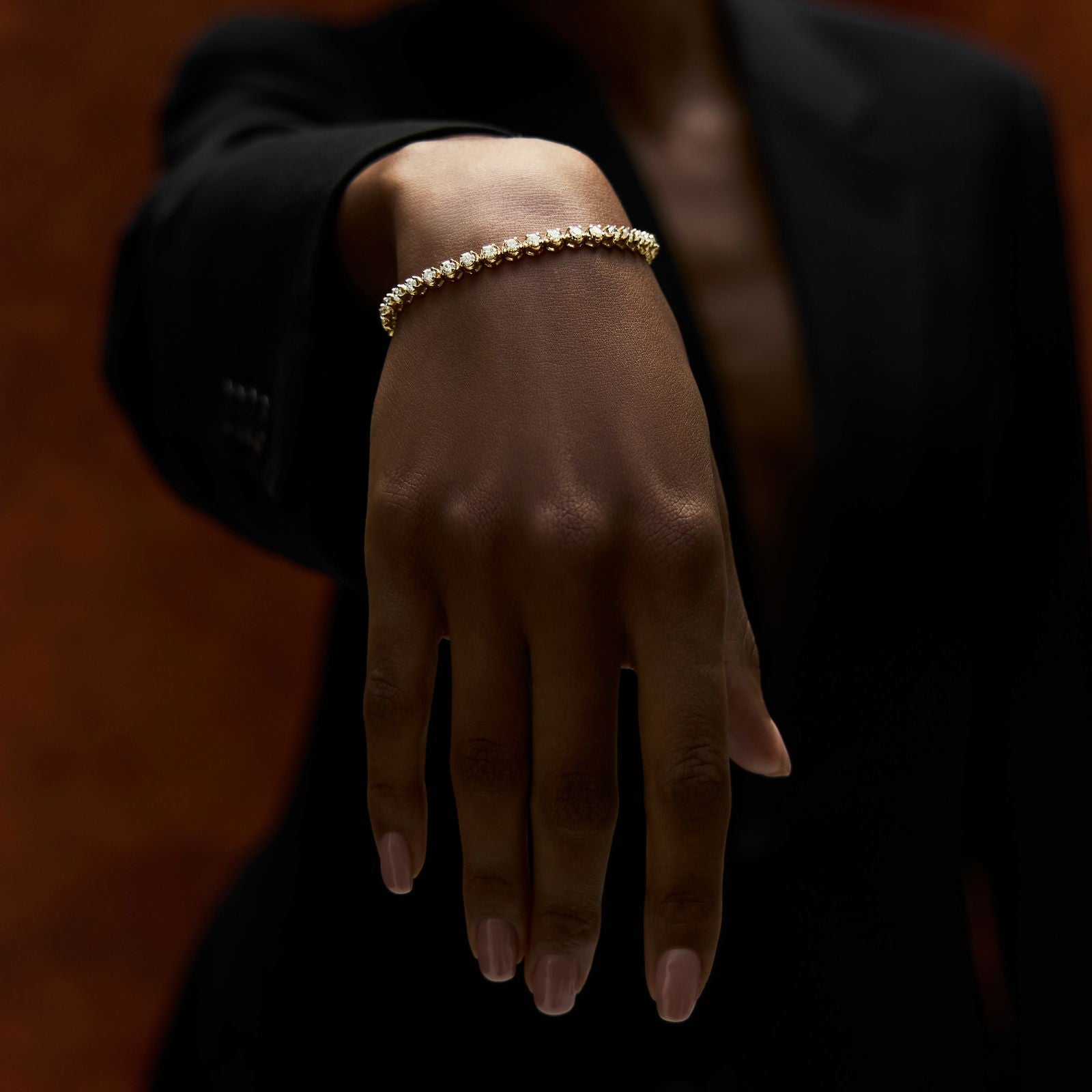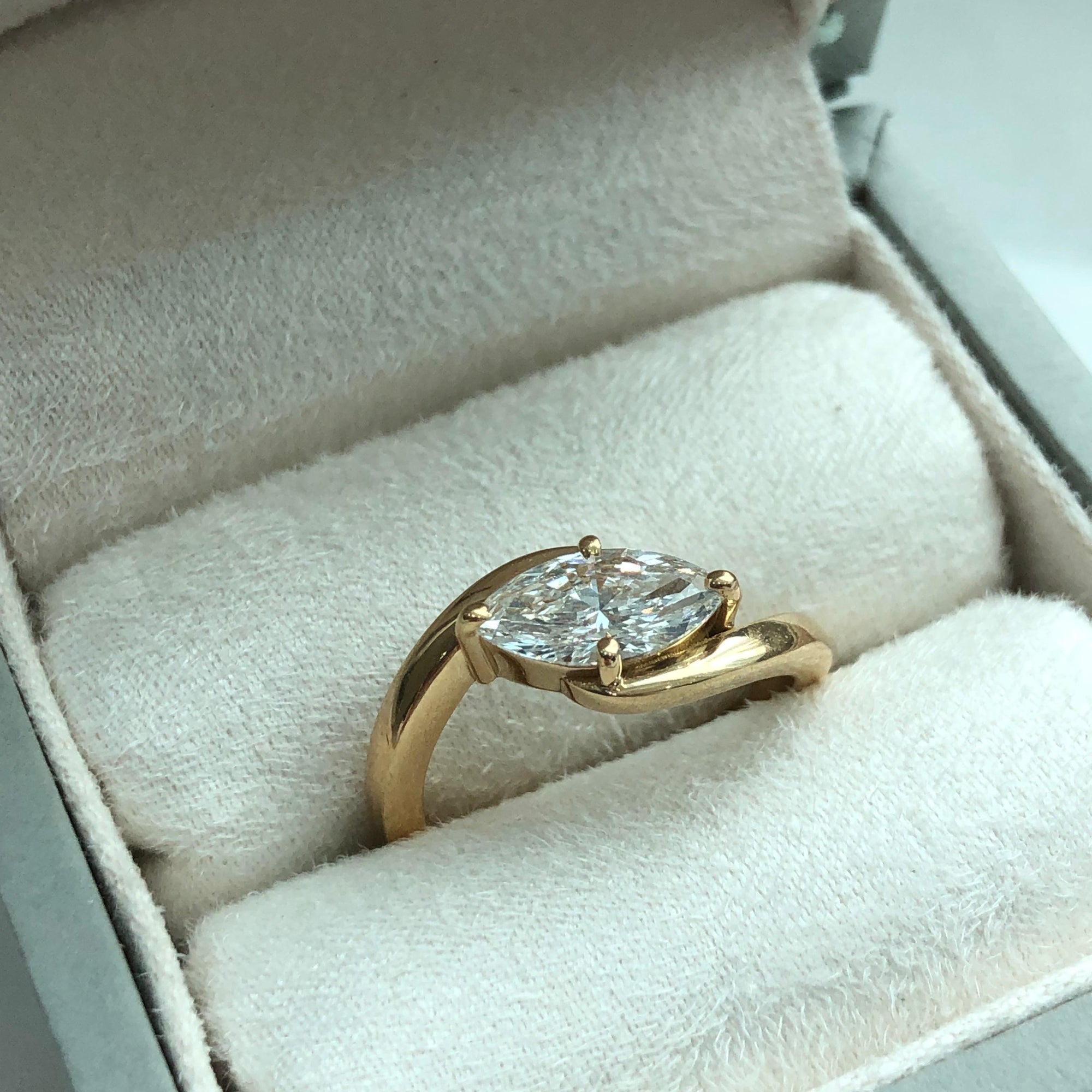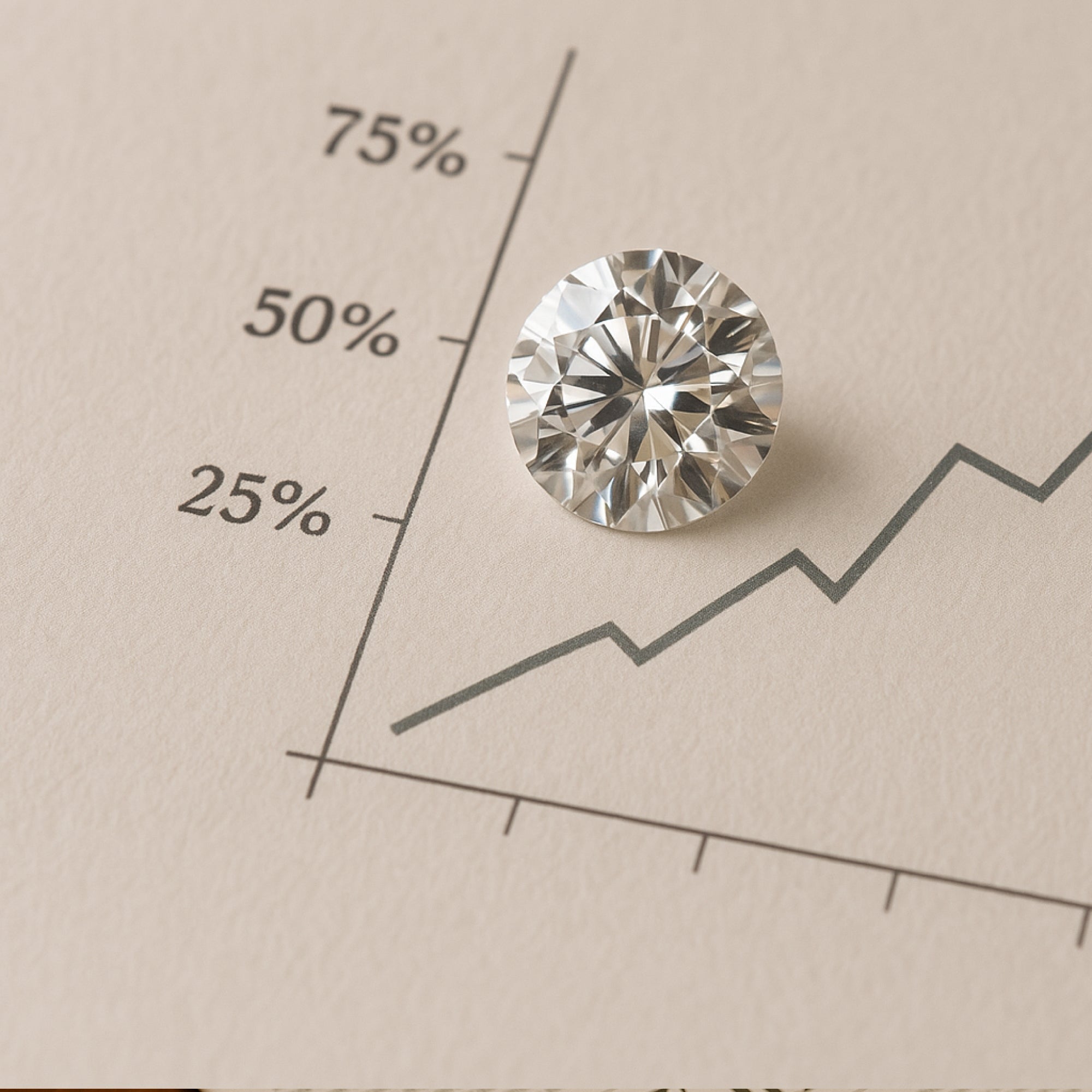When shopping for diamonds, you should buy from a jeweller that provides certification because it proves your diamond has all the characteristics it promises, ensuring you don’t pay more than its real value. While multiple institutes offer diamond certification, at Fyne, we primarily use IGI certified diamonds, as they are the leading authority in the lab-grown diamond market. We also offer GIA on request for our bespoke pieces, with both graders having excellent reputations and experience in the global industry.
Whichever you choose, you can guarantee the authenticity of your diamonds with the certificate that comes with all our pieces. Learn everything you need to know about IGI and GIA certification in this complete guide.
Diamond Certification
Diamond certification is a formal assessment that ensures a diamond matches its description. Certifications are useful for a number of reasons:
- Transparency: You know your diamond jewellery inside out; it aligns with its description.
- Standardisation: An independent institute offers an unbiased evaluation of a diamond’s quality based on its four Cs.
- Insurance: You are in possession of the data referring to your diamond, which assists in insuring it and proves the diamond has the characteristics you claim it to have if you decide to resell.
- Easy decision-making: Certification helps level the playing field when shopping for diamonds—you can compare on a like-for-like basis.
Jewellery Reports Versus Diamond Reports
A diamond report grades the 4 Cs of a loose diamond (done before the gem is set on a piece of jewellery). The reason for grading a loose diamond, rather than once mounted on a piece of jewellery, is that the assessment is far more accurate. Therefore, if your jewellery comes with a diamond report, it was graded as a loose diamond.
On the other hand, a jewellery report is one carried out once the diamond is set into the metal, whether that be earrings, rings or another item. While these are valid, they tend to be less accurate, as the gold (or other metal) can hinder the gemologist’s ability to detect inclusions. The prongs may cover an inclusion, making it difficult to discern, so the certification is more of an estimation.
Did you know? Often, a jewellery report will include a range rather than a specific grade. For example, when grading a tennis bracelet, the institution might say that the total carat weight is 20 carats and the clarity is between VS and VVS (very slightly included and very, very slightly included).
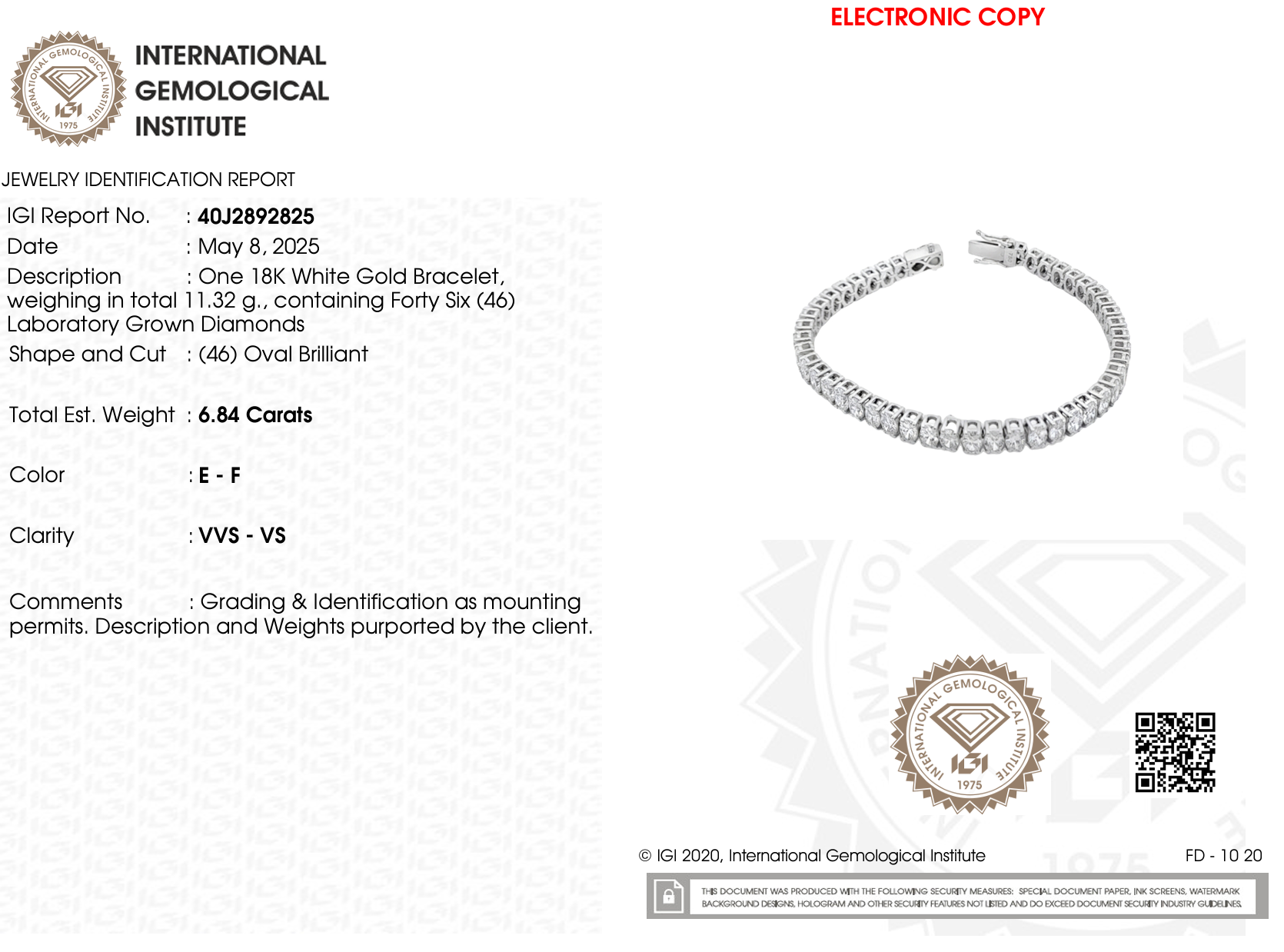
Diamond Certification Institutions
There are a few recognised institutes for diamond certification, including the Gemological Institute of America (GIA), the International Gemological Institute (IGI), the American Gem Society (AGS) and Hoge Raad Voor Diamant (HRD).
The International Gemological Institute (IGI) and the Gemological Institute of America (GIA) are two of the more well-known independent institutions that grade diamonds based on the four Cs of diamonds—cut, colour, clarity and carat. Both are reputable and trusted third parties that provide peace of mind when shopping for diamonds, whether it's a new bracelet or an engagement ring.
- The GIA was established in the 1930s and is the institute responsible for developing the concept of diamond certification. They offer a highly rigorous grading system, and the additional option to evaluate loose gemstones.
- The IGI was established later, in the 1970s, and is best suited for more detailed reports. It analyses jewellery as well as loose stones, and has established itself as a leading authority in grading lab-grown stones.
>Read more about why we use diamond certification here.
Understanding Diamond Certification: What is GIA Certified?
The GIA is the gold standard in diamond certification. The reason for this is down to how strictly they grade a diamond. Whereas some institutes might grade an ‘F’ coloured diamond as ‘D’ coloured, the GIA will have various gemologists to grade the same diamond and find an average (a lengthy and strict process). Diamond grading can have an element of subjectivity because it is down to the criteria of the human eye, albeit experienced. This is why there can be some discrepancies.
Note: The GIA are one of the more long-standing institutions, established in the 1930s. They have a highly rigorous grading system and offer the additional option to evaluate loose gemstones.
What does “GIA Certified” mean?
GIA certification reassures a buyer that the diamond described by a jeweller possesses the advertised characteristics. Although the vast majority of jewellers have no interest in defrauding their customers, providing GIA certificates increases the jeweller’s credibility and is an additional selling point for shoppers who compare different online and offline jewellers.
What is a GIA diamond?
If you’re wondering, ‘What is a GIA certified diamond?’, it’s a piece of diamond jewellery that comes with a certificate of authenticity issued by the Gemological Institute of America. This certificate is the result of rigorous and independent testing to determine the quality of the loose diamond before it has been set in a piece of jewellery, ensuring you pay a fair price for your jewellery. Understanding the meaning of GIA diamonds can help buyers make more informed decisions when evaluating a stone’s actual value and authenticity.
Did you know? Because a GIA diamond grading is the result of a group of experts rather than just one, you can guarantee that whatever grading is assigned to a diamond is 100% correct. This service does make a GIA diamond more expensive, as the cost of certification is factored into the final cost of the diamond jewellery — but it’s well worth it!
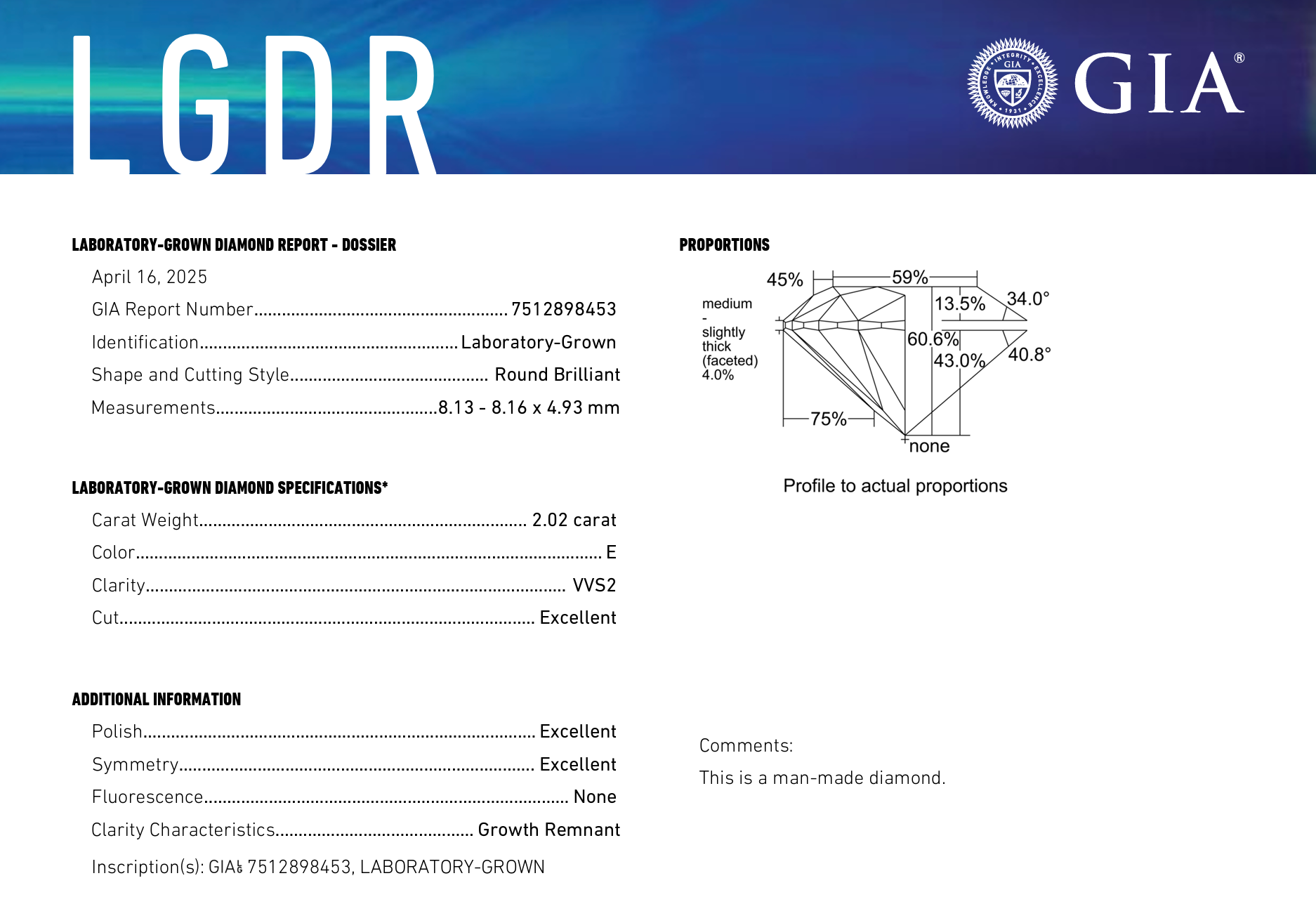
The Role of IGI in Lab-Grown Diamond Certification
IGI is popular with lab-grown diamonds—they were the first grading institution to embrace lab-grown diamonds, whereas the GIA was a little more hesitant. Additionally, the IGI is an Indian lab, making it highly accessible given that 90% of the world’s diamonds pass through India.
Why do we use IGI? IGI opened in Dubai, where Fyne is based, before the GIA made the move. While shipping diamonds abroad to have them graded is common, it is another cost factored into the diamond’s eventual selling price. The carbon footprint of having our diamonds shipped for this purpose was also something we wanted to eliminate, as part of our sustainable ethos.
The IGI was established in the 1970s and is one of the best institutes for detailed reports. It analyses jewellery as well as loose stones, and is very accurate and transparent in assessment.
What is IGI Certified?
IGI certified means a diamond has passed an authenticity test. An IGI certificate is a report produced by the International Gemological Institute that verifies the diamond’s characteristics. The report is created after running vigorous tests on a diamond or piece of lab-grown diamond jewellery.
Did you know? At Fyne, we use IGI grading as it is an international institution with a leading authority in the lab-grown diamond market. We can also issue GIA certification for our bespoke jewellery on request, although this service will incur additional costs.
IGI Certified Diamonds
An IGI certified diamond comes with a report that guarantees the authenticity of your diamond. When you purchase a diamond with an IGI certificate, a reference number is laser-engraved on the girdle of the diamond, which matches the number on the certificate, proving it is IGI certified.
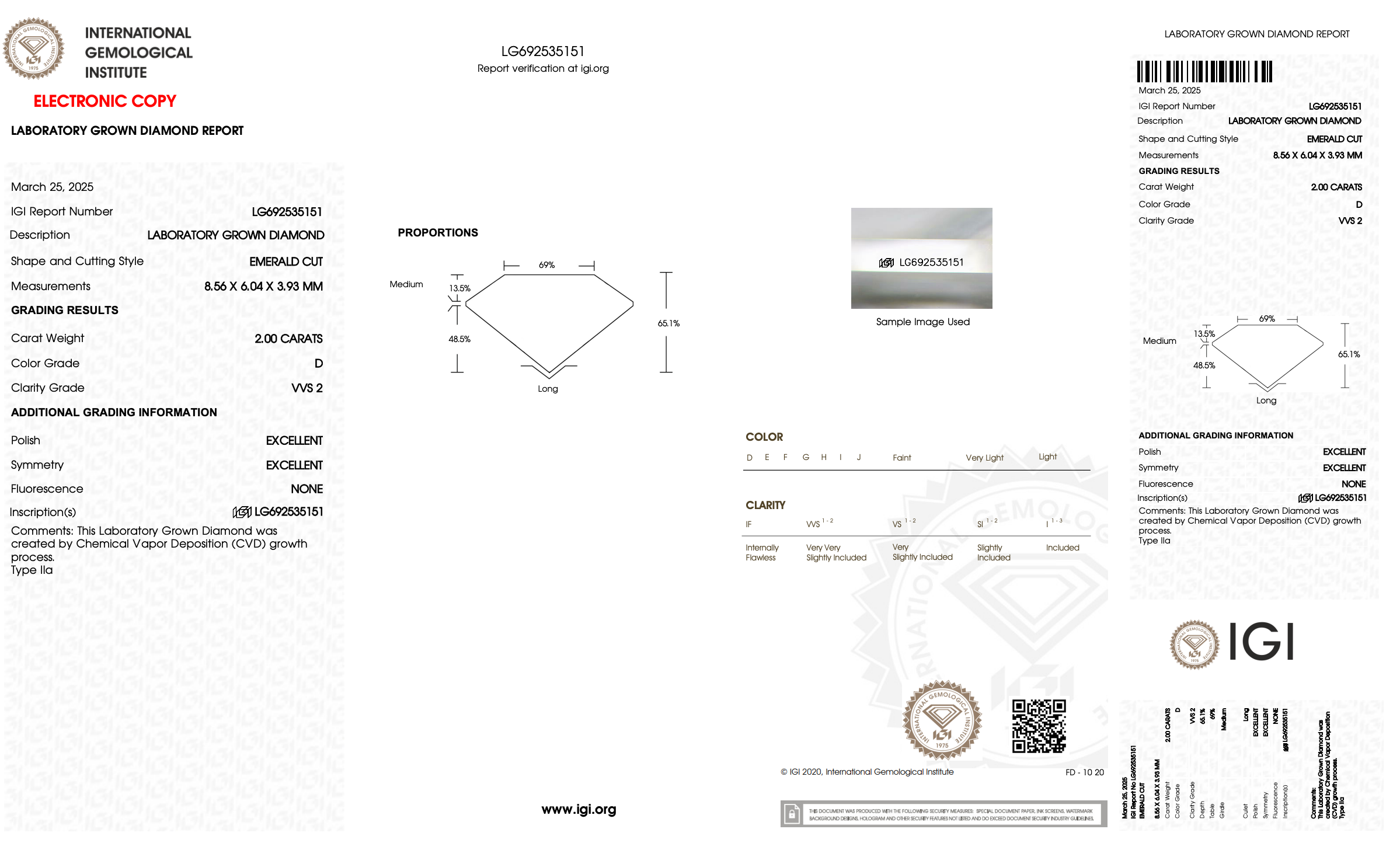
Comparing GIA and IGI Certifications for Lab-Grown Diamonds
The GIA introduced the concept of the 4 Cs of diamonds, and as such, became the benchmark for diamond assessment in the 1930s. However, as diamonds are internationally popular, many prefer to use the IGI as it holds a significant market share of 33% and is particularly relevant in the case of lab-grown diamonds, as it tests 65% of the world’s lab-grown diamonds.
Top tip! The four popular certification specialists are all highly esteemed—the key is to look for jewellery certified by the same institute to ensure you have a standardised analysis and fair comparison when you are shopping.
Importance of Certification for Lab-Grown Diamonds
The International Gemological Institute (IGI) has established itself as a leading authority in grading lab-created stones, thanks to a combination of early adoption, transparent practices, and a global reach.
Unlike more established institutions that displayed a conservative outlook and were slower to adapt, IGI embraced lab-grown diamonds early on, developing specialised grading standards that mirror those used for earth-mined diamonds. This consistency makes it easier for buyers to compare stones and understand precisely what they’re getting, especially in the context of lab-grown diamonds.
In fact, IGI certifies over 65% of the world’s lab-grown diamonds, making it the most widely used and trusted name in this space. Their reports are detailed, reliable, and recognised by many of the world's largest jewellery retailers and buyers.
Common Questions
When you’re in the browsing stage for diamonds, you’ll likely come across many terms that you’ll want to understand. Hopefully, this Q&A section will help:
What is a GIA certified diamond?
A GIA certified diamond is one that comes with a formal assessment of the diamond's properties from the Gemological Institute of America.
What is IGI certified?
An IGI certified diamond has a formal assessment on it from the International Gemological Institute that verifies its authenticity.
What are the four Cs of diamonds?
Cut, colour, clarity and carat. Cut refers to the diamond’s symmetry, proportions and polish. It is how well light interacts with the diamond based on its facets and design. Colour is the natural tint or hue in a diamond, or rather, the absence of colour. Clarity refers to the number of inclusions (imperfections) present, and carat refers to the weight of the diamond.
Final Words
It’s wise to ensure that you have a diamond certification included as part of your purchase; the IGI or GIA provides the most common and widely accepted certifications due to their authority in the market. While both are equally valid, the IGI takes a slight competitive advantage because it holds a higher market share. This is partly because it advocates for lab-grown diamonds, which are rightly gaining popularity as shoppers increasingly prioritise sustainability and value for money when purchasing diamonds.
At Fyne, we use IGI-certified diamonds for all our engagement rings, eternity bands, diamond studs and tennis bracelets and necklaces, so you can buy confidently in the knowledge that your lab-grown diamond is exactly as described. Our daily wear items come with in-house certification.
Do you have any further questions about diamond certification? Get in touch, and we’ll be happy to talk you through the process.

